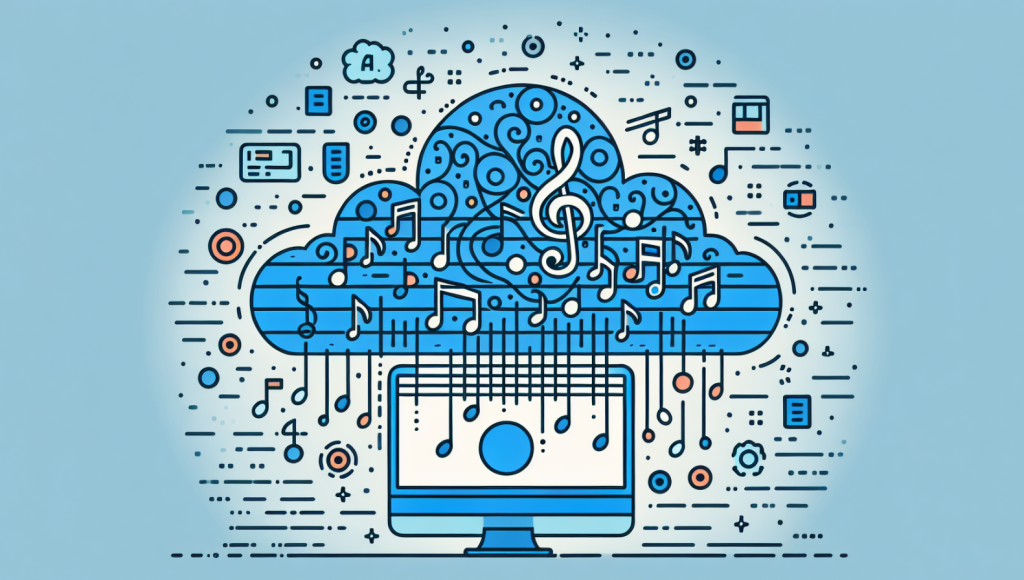With Suno on Microsoft Copilot, users can enter prompts like “Create a pop song about adventures with your family” or “Compose a romantic ballad for a loved one” and watch as Suno brings their musical ideas to life. From just a single sentence, Suno can generate complete songs that include lyrics, instrumentals, and even singing voices.
To access the Suno integration, users can simply launch Microsoft Edge and visit Copilot.Microsoft.com. After logging in with their Microsoft account, they can enable the Suno plug-in or click on the Suno logo that says “Make music with Suno.” This seamless integration makes it easy for anyone to start creating music right away.
This partnership between Microsoft Copilot and Suno opens up new possibilities for creativity and fun. Music creation is no longer limited to those with extensive musical backgrounds or technical knowledge. Now, anyone can express themselves through songwriting and composition.
In a blog post on the Microsoft Bing blog, it is stated that this collaboration aims to make music creation accessible to everyone. The post also mentions that the experience will begin rolling out to users starting today and will continue ramping up in the coming weeks.
The Rise of GenAI Music Creation
The integration of Suno into Microsoft Copilot reflects a larger trend in the tech industry towards AI-driven music creation. Both established tech giants and innovative startups are investing in GenAI-driven music tools and platforms.
For example, in November, Google AI lab DeepMind and YouTube partnered to release Lyria, a GenAI model for music. They also introduced Dream Track, a limited-access tool that allows users to build AI tunes in YouTube Shorts. Meta has also published several experiments with AI music generation, showcasing the potential of this technology.
Stability AI and Riffusion are two other notable companies that have launched platforms and apps for creating songs and effects from prompts. The demand for these tools is clear, as more and more people are discovering the joy of creating their own music with the help of artificial intelligence.
Ethical and Legal Considerations
While GenAI music creation offers exciting possibilities, there are still ethical and legal issues that need to be addressed. One concern is the use of existing music to train AI algorithms without the consent or compensation of artists.
In some cases, artists have expressed discomfort with GenAI algorithms learning from their work. Stability AI’s own GenAI audio lead even resigned after stating concerns about how these algorithms exploit creators. The Grammys have also banned fully AI-generated songs from consideration for awards.
Additionally, there are questions about fair use and copyright when it comes to using copyrighted works as training data for GenAI models. Many GenAI companies argue that fair use excuses them from having to pay artists whose works are public. However, this remains an uncharted legal territory.
Suno takes steps to address these concerns by attempting to block certain prompts and preventing users from generating covers by uploading lyrics to existing songs. However, there is still ongoing debate about the usage rights and legal implications of GenAI music creation.
The Viral Potential of GenAI Music
Despite the ethical and legal debates surrounding GenAI music creation, homemade tracks created with these tools have been going viral. These tracks often use GenAI to produce sounds that closely resemble authentic music, leading to concerns about intellectual property.
Music labels have been quick to flag these tracks to streaming partners, citing copyright concerns. While they have generally been successful in taking them down, creators of GenAI tools have simply migrated elsewhere, operating in underground communities where they continue to push the boundaries of AI-generated music.
A newly introduced Senate bill aims to address some of these issues by giving artists recourse when their digital likenesses, including their musical styles, are used without permission. This bill could provide clarity on the legal status of GenAI music and protect artists from unauthorized use of their work.
Conclusion
The integration of Suno into Microsoft Copilot brings powerful AI-driven music creation capabilities to users around the world. With just a simple prompt, anyone can compose songs with lyrics, instruments, and voices. This partnership between Microsoft Copilot and Suno opens up new horizons for creativity and makes music creation accessible to everyone.
While there are still ethical and legal considerations surrounding GenAI music creation, it is clear that this technology has the potential to revolutionize the way we create and experience music. As more companies invest in GenAI-driven music tools and platforms, we can expect even greater advancements in the field of AI-generated music.

